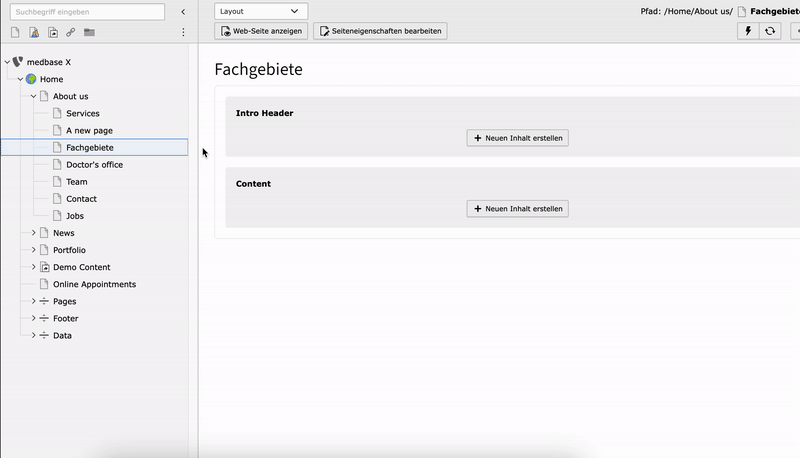Pages
Page Layouts
Changing a page layout
A page layout in TYPO3 defines the structural arrangement of content elements on a webpage.
What does it do?
- Structure: Organizes content areas like headers, footers, sidebars, and main content.
- Content Placement: Determines where specific elements (text, images, videos) can be positioned.
- Responsive Design: Adapts layout for different devices, ensuring usability across screen sizes.
- Flexibility: Allows multiple layouts for different pages or sections, providing design variety.
- Backend Layouts: Offers predefined arrangements for content editors, simplifying the page creation process.
- Styling: Supports CSS styling for visual customization and branding.
Backend Page Setting
Here's the TYPO3 guide on how to edit page settings:
https://docs.typo3.org/m/typo3/tutorial-editors/main/en-us/Pages/PageProperties/Index.html
Changing the page layout
- Access the Page Module: Click on the "Page" module in the left sidebar to open the page tree.
- Select the Page: Locate the page whose layout you want to change in the page tree and click on it to select it.
- Open Page Properties: In the top toolbar, click on the "Page" button (or right-click the page and select "Edit"). This will open the Page Properties dialog.
- Navigate to the Layout Tab: In the Page Properties dialog, look for the "Appearance" or "Layout" tab (the exact name may vary based on your TYPO3 version and configuration).
- Change Layout Settings:
- Here, you can adjust the layout settings, such as the layout type (e.g., default, custom, etc.), select a specific backend layout, or configure other layout-related options.
- You may also find options for configuring content elements that should appear in the layout.
- Save Changes: Once you've made the desired changes, click the "Save" button to apply the new layout settings.

